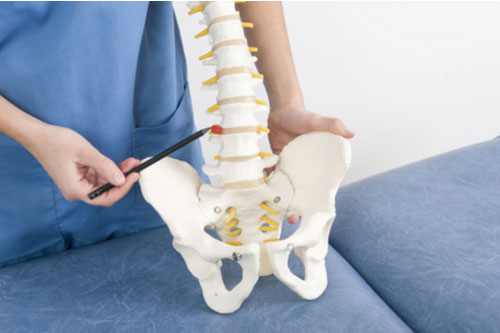- Whiplash
Whiplash refers to what some call neck strain. Whiplash is a minor injury caused by a car accident or fender-bender, and can be described as whiplash. This happens when your head is pushed forward or backward with brute force.
The sudden thrusting action can cause injury or stretch your neck’s muscles and tendons. Whiplash, in medical terms, is caused by sudden stops or vehicle accidents. Whiplash can also be caused by sports injuries.
If you play contact sports like soccer, for example, you could develop a neck strain. Whiplash is a motion that causes the neck and head to snap forward and back like a whip. It is important to seek immediate medical attention if you are involved in a car crash. Let’s now take a look at whiplash.
A brief overview of Whiplash
Whiplash is an injury to the soft tissues of the neck. It is caused by a rapid and forceful movement of the neck that imitates a whip. Whiplash is most common in car accidents.
Whiplash can also be caused by high-intensity contact sports like ATV accidents and aircraft crashes. This serious injury is often caused by auto accidents. These are some of the most common symptoms of whiplash:
Whiplash can cause soreness in the neck after an auto accident. You can recover from whiplash if you seek prompt treatment. For a quick recovery, however, you must follow a chiropractor-based plan.
In car accidents, the sudden impact causes severe soreness and pain in the neck. Whiplash can also be caused by whiplash due to direct head strain from sports activities. Whiplash can also be caused by neck tension.
You are more susceptible to whiplash if your occupation involves obdurate movement in the neck.
Whiplash Side-Effects
Soft tissue injuries take longer to heal. However, the longer you delay treatment, the more damage can occur in the long term. These are some side effects of whiplash.
Difficulties in Sleeping
Chronic neck pain can make it difficult to sleep. It can cause stiffness and more pain if you sleep with a stiff neck.
Loss of motion and stiffness
Untreated whiplash injuries can lead to immobilization of the neck. You may also experience muscle stiffness and poor healing if there is no motion.
Headaches and Migraines
No one can deny that neck pain can lead to severe migraines and headaches. It can be so severe that it can make your day difficult.
Tinnitus
Whiplash may not be treated properly and can cause persistent ringing or buzzing in your ears. This condition can cause problems with focusing and sleeping.
Depression and Anxiety
Whiplash is a sign that you are not competent in daily tasks. Depression can occur when you’re unable to complete your daily tasks. As the injury prevents you from performing daily tasks, whiplash can lead to long-term depression. Whiplash can cause anxiety and depression that could lead to relationship problems.
Whiplash can cause a loss of balance
Remember that your neck plays an important role in your overall balance. Your body’s nerve signals help maintain equilibrium, in case you didn’t know. These nerves may be suppressed by whiplash injuries, which can lead to loss of balance.
Cervicogenic dizziness, which is the term for balance loss, can also be described as it. This is a common side effect of whiplash injuries. People often mistake concussions and dizziness for one another.
As you can see, getting the help of accident physicians is the best option. You can assess the extent of neck damage with proper treatment. You can consult specialized accident physicians to get the best treatment.
Doctors would also be able to analyze nerves that have suffered severe damage. You have a better chance of recovering from whiplash if you get medical attention as soon as possible.
Concussion- A Serious Side Effect of Whiplash
Whiplash injuries can cause your brain to bounce against your skull. This is a common observation. A concussion is caused by the brain’s sudden movement. An accident doctor will perform a complete checkup to determine if you have concussion symptoms.
However, professional treatment can make your concussion worse if you do not seek it out. You are at high risk of complications if you do not seek treatment.
Vertigo- The Most Dangerous Result of Whiplash Injury
Vertigo, which is a dangerous side effect of whiplash injuries, is undisputed. Vertigo refers to a condition in which a person feels as if they are falling or spinning. They may also feel dizzy or faint in some cases.
Vertigo can also be described as an imbalanced sensation. Vertigo is common with whiplash injuries. Neck injuries can lead to misalignment of the cervical spine.
The patient might experience non-vestibular dizziness. Complex cervicogenic dizziness can also be caused by whiplash injuries from auto accidents. Contact a specialized accident physician immediately if you have experienced similar symptoms after an auto accident.
Vertebrae misalignment
Whiplash injuries can cause the uppermost vertebrae of the neck to shift out of alignment. This can affect normal posture and reduce the person’s range of motion. The C1 and C2 vertebrae connect the skull to the spine.
These two joints are misaligned by whiplash, which is a sudden force caused by whiplash. In such an environment, the brain cannot communicate with the central nervous system. Whiplash motion injury is most common in the C1 and C2 vertebrae.
Degenerative Disc Illness
Consult a chiropractor immediately if you have been in an accident involving an automobile. Untreated whiplash can have long-term consequences. Degenerative disc disease can lead to mobility problems and can even cause paralysis. Spine injuries resulting from accidents are very serious for all involved.
This refers to the condition in which the discs between vertebrae become damaged. This can lead to weakness and numbness. You may also lose the fine muscles of your neck from severe whiplash injuries. You may also experience dislocation of your upper cervical spine.
The discs between the vertebrae act as shock absorbers. They allow us to bend our backs and flex our spines. Degenerative disc disease can cause loss of mobility and flexibility.
Contact Injury Medicine to Get Treatment for Your Whiplash
As you can see, whiplash injuries are not something to be underestimated. Get the help of an accident doctor from Injury Medicine immediately if you were involved in an automobile accident.
Whiplash treatment’s main purpose is to reduce pain and improve mobility. You can restore your life to normality with the right treatment plan.





